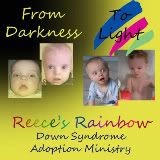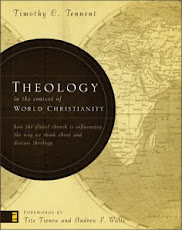
Here are my notes from Phud's sermon this past Sunday at
Remedy Church:
INTRODUCTION
Galatians 5:1-15 summarized: We are in desperate need and the only solution is the gospel; our right response to this solution is loving others, as God loves us, and taking the gospel to them.
How do I live, now that I am a Christian?
Is my life characterized by sinful living or living by the Spirit?
How do we live by the Spirit?
The answer to the "How?" of living Christlike lives and loving others is obviously "by the Spirit" - Gal. 5:16, 18, 22, 25.
4 TRUTHS OF LIVING BY THE SPIRIT
1) Your desires, because of you flesh, are often too weak (Gal 5: 16-17)
- C. S. Lewis quote:
- Desires are not bad - Paul is making a contrast between the desires of the flesh (which are sinful) and the desires of the Spirit (which are holy)
- Desires are only bad when we desire lesser things than those things which should be our ultimate desires
- We have to constantly check to see if our desires are in line with God's desires
2) Walking by the Spirit means we are no longer under law (Gal 5:18)
- When you come to know Christ, you don't have to law-keep anymore (Rom 7:6; Rom 6:14; Rom 3:20; Gal 3:23-25)
- We don't have to keep the law anymore; rather, we should be living by the Spirit
- We are freed from sin, BUT slaves to righteousness (Rom 6:17-18)
3) The "works of the flesh" describe those who are not in Christ (Gal 5:19-23)
- The bad news is that all those who live according to the flesh (which is everyone) will not inherit the kingdom of God
- The good news is THE GOSPEL; this is the only good news
- Only because of the cross of Christ can we be reconciled; the fruit of the Spirit is exactly that - "fruit of", not payment for
4) You must count yourself crucified with Christ in order to live by the Spirit (Gal 5:24-26)
- The core Gospel message is not how we become a better person; rather, it is that we are all dead people who can only be made alive by God, through Christ's work (Gal 2:20)
- Christianity is not about stopping the fruit of the flesh or starting and doing the fruit of the Spirit; Christianity is not a self-improvement plan
- As Tim Keller communicates, being fanatical/legalistic/Pharisaic does not come from being too Christian or understanding the Gospel and theology too much; rather, this misplaced zeal comes from not being Christian enough and not having a proper understanding of the Gospel and theology
Every act of the fruit of the Spirit is only by God doing it through us - ALL glory should go to God - this is why Paul includes this last verse at the end of the chapter (Gal 5:26)
CLOSING COMMENTS
- Stop Preforming!
- You cannot become a better person, but you can become a worshipper of Christ; you cannot be better, but you can be forgiven and adopted
- Believers need to preach the Gospel to ourselves and each other daily so that we will not become duty driven, because duty leads to arrogance or depression (depending on how you perceive your performance on any given day)
Read more...




























